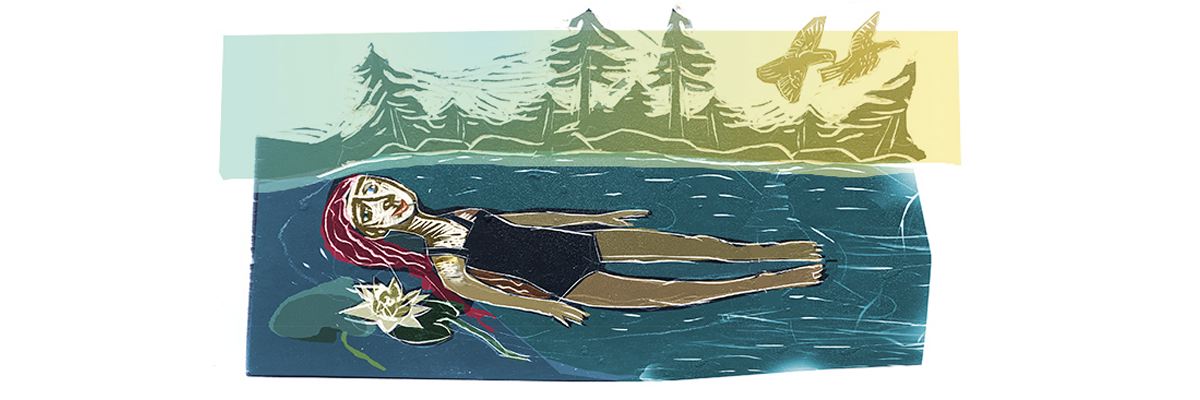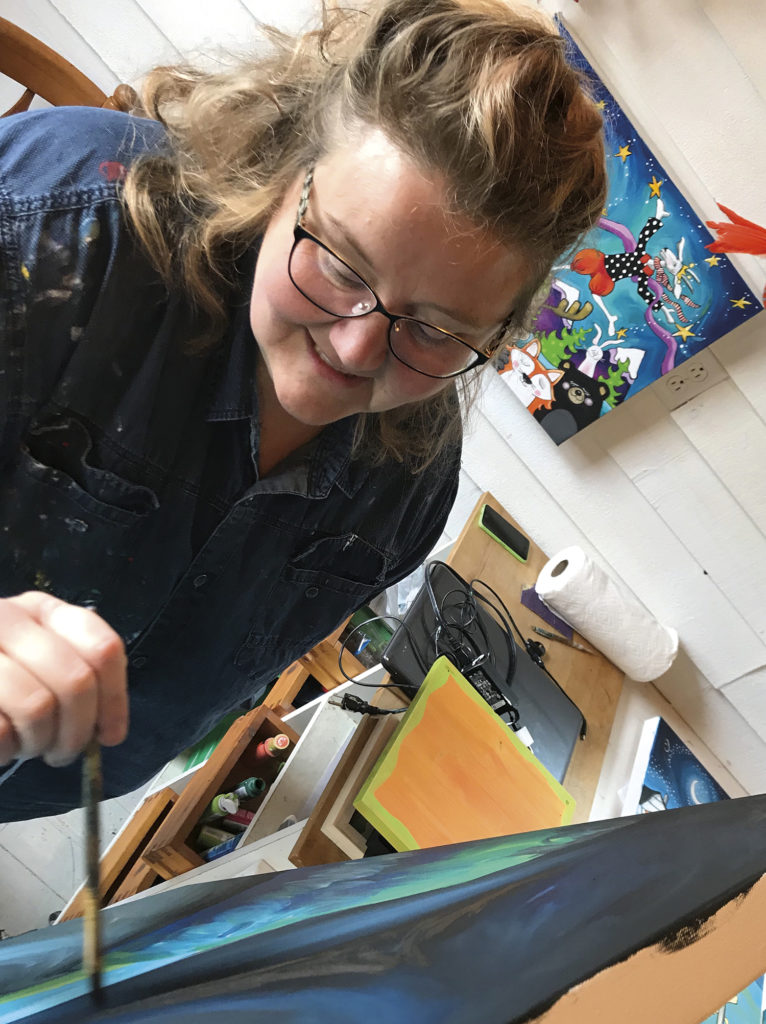The call of the Atlantic
August 2017
I’VE LIVED WITH this mythology and longing all my life. There’s a particular disposition to born Newfoundlanders; you’re always homesick and talking about the ocean—it’s part of the rhetoric of mainland migration. I grew up in the suburbs outside of Toronto, yet the Atlantic lives within. I was carried in my mother’s ocean, and returned to the Atlantic not long after I was born. My ancestors are made of land and water.
I feel washed up in Upper Canada, achey and dehydrated all the time. It’s like I can’t get enough water in me. I think I secretly have gills, and need to be thrown back to sea. Seriously, I’ve snuck into hotel pools only to swim amongst pane glass windows, sometimes high above the city, other times in basements below.
Living on ancestral land shapes a body, yet being immersed in water makes a body. Swimming is a rebirth, a ritual of becoming and returning. I’ll never forget my poet friend Anna Swanson, who picked me up at St. John’s International Airport, fresh off the plane from a reading in Halifax, and with my suitcases in tow, took me to Punch Bowl. We undressed on the highway’s shoulder, and plunged our wordy bodies into the fresh, cold pond. In water, I feel whole again.
I declared I no longer believed in love. Moments later, two bald eagles in their mating dance locked claws, and carthwheeled over the Atlantic, and flew off into the trees to mate. I swallowed my tongue.
Summer swimming in Newfoundland is paradise. You can get your afternoon quick fix even in the city limits—Three Ponds Barrens in the morning, Long Pond at lunch, and Sunshine Camp at sunset. When I couldn’t hitch a ride, I’d swim solo in Bannerman Park, and marvel at Signal Hill from the chlorinated pool.
Mid-summer, Anna and I were on poetry tour in Trinity Bay and treated ourselves to a night at Fisher’s Loft, where we shared a trinity of swims—the ultimate merfolk triathlon. Diving into Atlantic, we bellyflopped into saltwater, and swam with the whales at the head of Skerwink Trail. As our skin turned blue, we got out, and jumped into the barachois, a muddy lagoon to return our pink colour. Finally, we capped our swimmer’s triad in the pond, and got tangled up with the lilies. Even on my lunar early June birthday, there was a baptism in Bellevue Beach.
No matter how much the water warms, swimming in Lake Ontario doesn’t compare. Some Torontonians believe the lake could be an ocean. Their defence? You can’t see the other side. I’ve tried swimming in the lake, but my grimey skin told me to get out.
The Atlantic changes you. It’s tough love, but there’s nothing like it. Last summer at Blackhead Trail, overlooking the rugged sea, I declared I no longer believed in love. Moments later, two bald eagles in their mating dance locked claws, and carthwheeled over the Atlantic, and flew off into the trees to mate. I swallowed my tongue.
I’ve swum in other seas—below flamingos flying into the Caribbean sunset, with tropical fish in the Mediterranean’s periwinkle. I’ve skinny dipped by thin moonlight with the Pacific’s phosphorescence, and later this spring, I’ll cleanse my spirit in Greece’s Aegean Sea. Yet, every ocean is ultimately connected to the Atlantic.
My most transformative swim was after my first sweat lodge experience at Miawpukek First Nation Powwow in Conne River. Several rounds of ceremony later—a physical and spiritual retribution too sacred to name—and I came out of Mother Earth’s womb reborn, stripped off my sweaty dress, and swam naked in Conne River under thousands of ancestral stars.
As I’m preparing guest speaking notes for Dr. Erin Wunker’s Poetry of the Atlantic class at Acadia University via Skype, I’m reminded of the poetic call of the ocean, its ancestral beckon, and how it laces lifetimes of generations. Mi’kmaq are the people of the dawn, where the light shines first on Turtle Island.
I’ll speak to the bloated blue whale that beached in Trout River, and sparked “A Sixty-Tonne Blue Whale Slowly Rots,” a poem from Still No Word (Breakwater, 2015). Weeks after visiting the Royal Ontario Museum, I’m still unsettled about gawking at whalebones hinged out of the sea. All I know is, don’t ever suspend my bones, or put me on display in a museum. I want to be brought back to the ocean where I belong.




